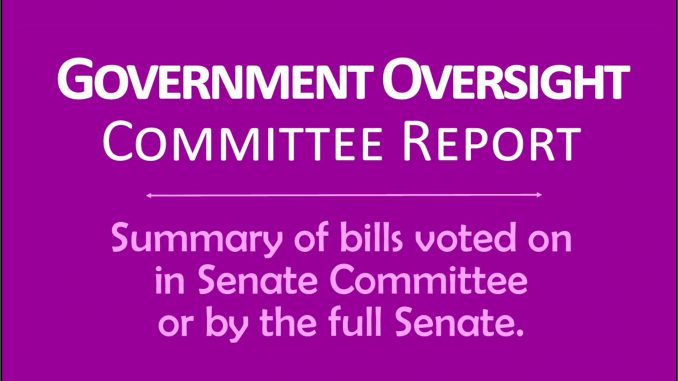
On this page
COMMITTEE ACTION:
SF 639 – Lobbying activities by political subdivisions
SF
639 requires a political subdivision to have a request for proposal process
(RFP) for hiring a lobbyist. A lobbying contract can be issued for a maximum of
five years and then an RFP process must be rebid. The city/county/school must
publish a copy of all lobbying contracts and payment details. If an employee,
officer or official of a political subdivision engages in more than 10 hours of
lobbying on behalf their employer in a calendar month, they must keep track of
the total annual compensation paid to each person and the total number of hours
spent by each person on lobbying activities. Finally, all documents and records
relating to lobbying on behalf of a political subdivision will be considered
public records.
[2/26: 3-2]
SSB 3098 – Custody and control of courthouses
SSB 3098 makes it clear that a county auditor has custody and control of the county courthouse, subject to the direction of the county board of supervisors. The bill strikes a “general custody and control” provision to make custody and control clearer. Currently, a county or city provides suitable facilities for the district court of the county. If the county board of supervisors decides not to keep space for the district court, they may enter into an agreement with a contiguous county in the same judicial district to share costs in providing physical facilities for a district court.
SSB 3098 clarifies that the physical facilities remain the sole property of the county or city and be subject to the exclusive control of the county or city, and that the county or city will provide physical security and access to these facilities in a manner that aids judicial operations.
The legislation allows the county board of supervisors or the city councils to determine the adequacy and reasonableness of the security and accessibility of the physical facilities, and includes a provision that a court does not have jurisdiction to hear a matter involving the adequacy or reasonableness of the facilities.
Finally, the bill tells counties that they do not need the
approval of the Supreme Court enter into an agreement with a contiguous county
to share court costs, as opposed to maintaining their own county facilities.
[2/26: 5-0]
